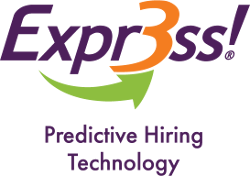
Hiring on skills then firing on attitudes makes for costly mistakes
Hiring great people, who are in for the long haul, requires focusing less on what they can do and more on who they really are. Everyone wants to avoid bad hires!
As employers are swamped with more job applications than ever, the temptation is to rely on old-fashioned CV screening to determine who makes the first cut. Skimming the skills section of a CV might give you an idea of what a candidate potentially brings to the role, but not whether they’re actually a good fit for your business.
Part of the problem is that 78 per cent of job seekers lie on their resume, according to reference-check firm Checkster. Not surprisingly, the most common lie is claiming proficiency in skills which they don’t actually have.
ChatGPT a problem for ATS CV keyword parsing
On top of this, job seekers are increasingly turning to the likes of ChatGPT to ghost-write their CV and cover letter. The trouble is that ChatGPT is very good at writing what employers want to hear, even if it’s rather formulaic and not all necessarily true.
Many recruitment teams use Applicant Tracking Systems (ATS) to streamline the hiring process. They sift through CVs in search of the right keywords. It’s called CV parsing, after which they can easily do a talent search.
ChatGPT tries to game the system by cramming in all the right words and phrases in order to make the cut. With systems full of fake CVs it makes it impossible to find real needle in the haystack.
The applicant and employer perspectives
From a job applicant’s perspective, turning to ChatGPT means they’re foregoing an opportunity to convey who they really are, because they’ll just come across as a bland generic robot. On top of this are the privacy concerns that come with applicants that enter all their sensitive personal information into ChatGPT.
From an employer’s perspective, the rise of ChatGPT means you can’t trust most CVs and cover letters to be accurate – not even an accurate assessment of the candidate’s English skills.
As with any process, garbage in means garbage out. When you can’t trust CVs, you certainly can’t trust hiring decisions based on them.
Related article: https://blog.expr3ss.com/why-recruiters-are-switching-to-predictive-hiring-technology/
It’s even worse when you consider that people can inadvertently introduce their own biases when weighing up these CVs. Even with the best of intentions, those in charge of hiring can be influenced by unconscious bias which sees great candidates cast aside because they seemingly don’t fit the mould.
An even bigger problem is that CVs fail to convey critical soft skills such as temperament, attitudes and communication skills. These soft skills are especially important when it comes to working with people and fitting in with your workplace culture.
Bad hires, recipe for disaster
Hiring on hard skills while ignoring soft skills is a recipe for disaster. The most qualified candidate in the world is still a bad hire if they’ll only be around for a few months because they’re a poor fit.
The true cost of a bad hire goes far beyond not meeting the needs of the immediate role. The disruption of hiring the wrong person for the job can have a significant wider impact on workplace culture, team dynamics, morale and productivity.
Keep repeating this mistake and, after a while, you can even start to lose people who really are a great fit for the job – because they’re fed up with the revolving door and constantly needing to train new people. Now you’re even worse off than when you started.
Some businesses take a high churn rate for granted, failing to recognise that there’s a better way to approach hiring rather than repeating the mistake of garbage in, garbage out.|
Assess critical soft skills to avoid bad hires
The solution to hiring great people who will stick around is to place less emphasis on cover letters, CVs and hard skills. Instead, you need to take advantage of new recruitment tools that focus on asking the right set of screening surveys to assess critical soft skills.
Using short surveys, Expr3ss! quickly and cost-effectively pinpoints job applicants with the right skills, attitudes, temperament and cultural fit. Employers can also tailor the questions to ensure that they unambiguously address the requirements of the role.
Surveys typically only take around six minutes to complete. They can include deal-breaker survey questions to ensure applicants have all the necessary qualifications and certifications before they are recommended for an interview. Combined with a video questions, you remove the guesswork about who to progress for an interview.
The beauty of this approach is that it lets applicants show you who they really are, rather than tell you who they claim to be. It allows the right people for the job to shine, even when you’re looking for a needle in a haystack.
The results speak for themselves. Signature Hospitality Group operates 50 venues across Australia and New Zealand, including the Sporting Globe Bar, TGI Fridays and Varsity. They employ more than 2000 people and, thanks to Expr3ss!, they have an amazing 95 per cent staff retention rate – which is simply unheard of in the hospitality sector.
Recruiters and algorithms work together to avoid bad hires
The answer to effective hiring and avoid bad hires is not to hand over the process to algorithms. People must still make the final decision on who gets the job. Instead, the key to effective hiring is to take advantage of technology like Expr3ss! in order to cut through the noise and be more objective when determining which applicants make it through to the interview stage.
When it comes to hiring great people, you’re never going to break the cycle of garbage in, garbage out until you change the way that you search for hidden treasure.
